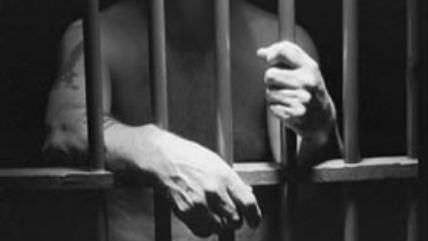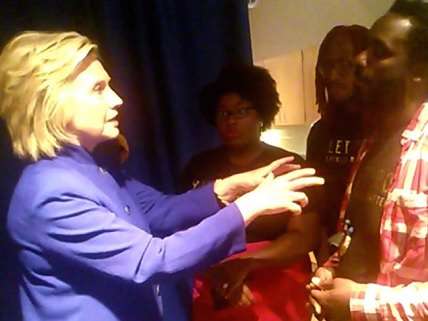Criminal Justice Reform: Which Ways the Winds Are Blowing
Democratic candidates are endorsing—or paying lip service to—reform. What will happen in the GOP?


As Black Lives Matter unveils the group's specific demands for police reform, it's worth noting that all the Democratic presidential candidates have at the very least started to pay lip service to BLM's quiver of issues. Jim Webb, of course, was talking about this stuff before it was trendy. But now the candidates with the worst records on mass incarceration—Hillary Clinton and Martin O'Malley—have each made a big show of embracing reform. (When former Reasoner Radley Balko took a look at what the major candidates' websites say about criminal justice, O'Malley turned out to have the most detailed discussion.) Bernie Sanders is saying more too: After BLM protestors disrupted some of his campaign events, he added a bunch of planks about policing to his site.
You can question these people's sincerity. You can fault some of their proposals. You can observe that they sometimes simultaneously take positions, like O'Malley's push for stronger gun controls, that could make mass incarceration worse. I'm not endorsing anyone here; I'm just highlighting the rhetoric. Politicians are weather vanes, and this is where the wind near these candidates has been blowing.
Not so on the GOP side. Rand Paul stresses this set of issues, and there are other Republicans running—Rick Perry, Ted Cruz—who at least address it. Others ignore it or worse. Mike Huckabee, who had a relatively humane record in this area when he was governor of Arkansas, had the most authoritarian criminal-justice postures in Balko's roundup. And while Huckabee has his own reasons to try to look tough on crime, he's also running at a time when a post-Ferguson backlash has been bubbling in much of the right. So he isn't the only candidate who's trying to talk tough. His party's current frontunner, who leaped into the lead after announcing an alleged epidemic of Mexican assaults, has said that if Black Lives Matter activists try to disrupt one of his events, "I don't know if I'll do the fighting myself or if other people will…but believe me, that's not gonna happen to Trump."
Now BLM activists are starting to show up at Republican rallies. Good for them: Both parties deserve to be protested. But as that becomes more common, forcing the GOP's would-be presidents either to talk about cops and prisons or to be more conspicuously silent, what happens next? Will the alliance of libertarians, evangelicals, and bean-counters who've been making inroads for reform on the right be able to influence the candidates' responses? Or will criminal justice reform get branded as a Democratic issue: a collection of concerns that conservatives shrink away from because they associate it with the left? If it's the latter, it'll only be easier for the candidates on the Democratic side to get away with offering little more than lip service.


Show Comments (63)